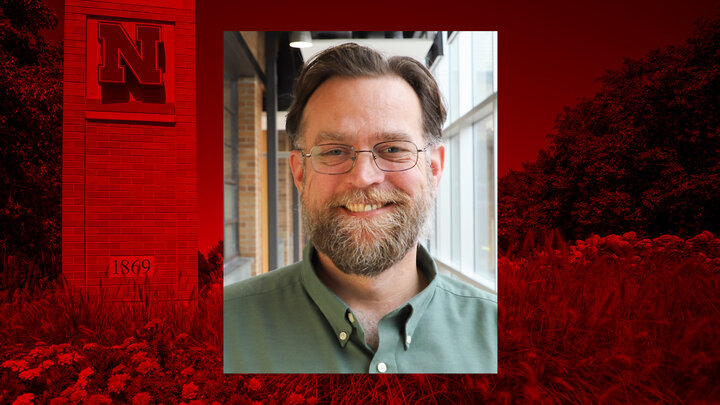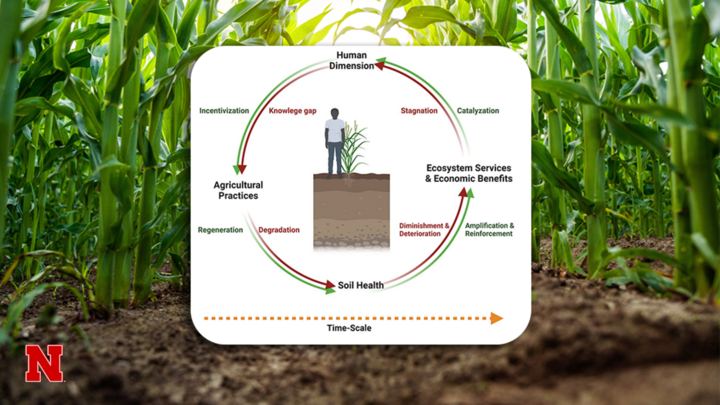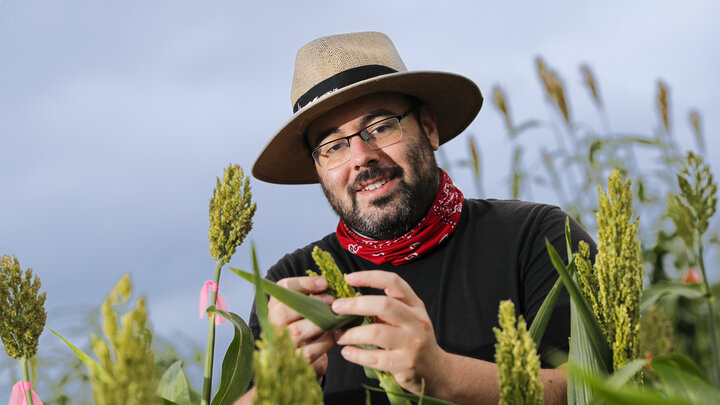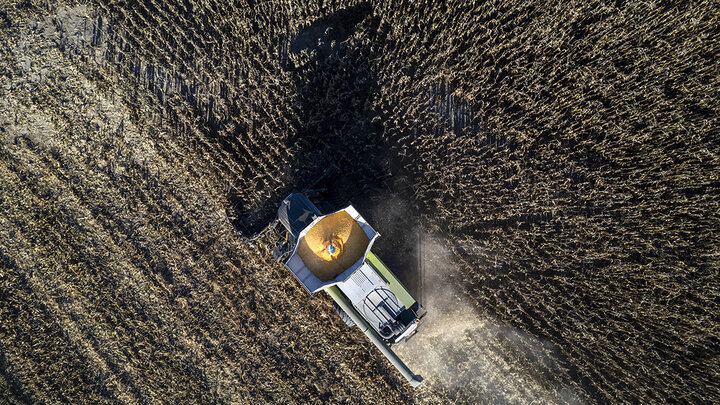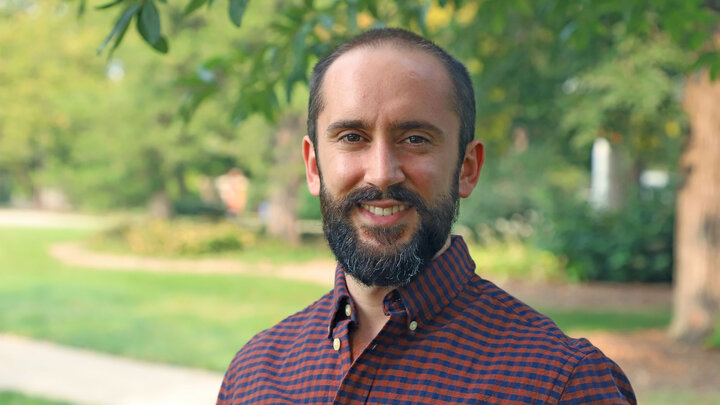Christian Stephenson started Jan. 3 as an assistant professor of practice for landscape and regional food systems in the Department of Agronomy and Horticulture. He has a 75% teaching and a 25% research appointment.
On the academic side, Stephenson is developing a course called Introduction to Plant Diagnostics for undergraduate and graduate students. This course will train students to diagnose various plant health and productivity challenges, including abiotic and biotic stresses. Students will learn a systematic approach to determining what insect, plant disease or physiological issue affects plants in production or the landscape.
He will also teach the Plant and Landscape Systems 133 Horticulture Plant Sciences Lab and co-teach Edible Landscapes with Kim Todd, professor of agronomy and horticulture. In addition, he will teach the Organic Agriculture and Food Systems course, which he plans to have ready for the spring semester of 2024.
His research and interests work together like the puzzles he enjoys and keeps in his office. His research focuses on the sustainable production of specialty crops and connects with his interest in integrating diversified specialty crop production into urban environments.
“I am interested in how small-scale producers can expand their economic sustainability while also providing benefits to the environment,” Stephenson said. “Another aspect of this is diversification of production to include crops that are important for minority and underserved populations.”
This summer, Stephenson will start a project investigating the effect of intercropping cut flowers and vegetable production regarding the economics of production and how this affects the populations of beneficial arthropods.
Born and raised in Macon, Mississippi, a small town in Noxubee County in the east-central part of the state, Stephenson’s first interaction with horticulture was in his grandmother’s large garden.
“I fondly remember helping her over the summers — though how much I was really helping may be a bit questionable,” he said.
He returned to horticulture in college, growing plants in containers as an undergraduate student and working in the greenhouse during his entomology and plant pathology graduate programs.
Stephenson holds a Bachelor of Science in biological sciences from the University of Southern Mississippi. In addition, he earned dual master’s degrees in entomology in 2005 and plant pathology in 2011 and a doctorate in horticulture in 2019, all from Mississippi State University.
Before moving to Lincoln, Stephenson lived and worked on the Mississippi Gulf Coast as an extension agent in Hancock County. His responsibilities included all aspects of agriculture, but Stephenson focused heavily on home horticulture and small-scale vegetable and fruit farms. He also had responsibilities working with 4-H youth development.
He came to Nebraska for the opportunity to teach horticulture at the university and to pursue research interests in support of sustainable regional food systems.
“Lincoln and its people have been very kind to me and my wife Amber,” he said. “Amber is a librarian, and in the words of Cicero, ‘if you have a garden and a library, you have everything you need.’”
Stephenson said they hadn’t explored Lincoln as much as they would like, but they have enjoyed their time here, especially visiting the Sunken Gardens this spring.
When he’s not working on his courses and research, or just needs time to noodle an idea, you can usually find Stephenson pondering over a new cast metal puzzle.
